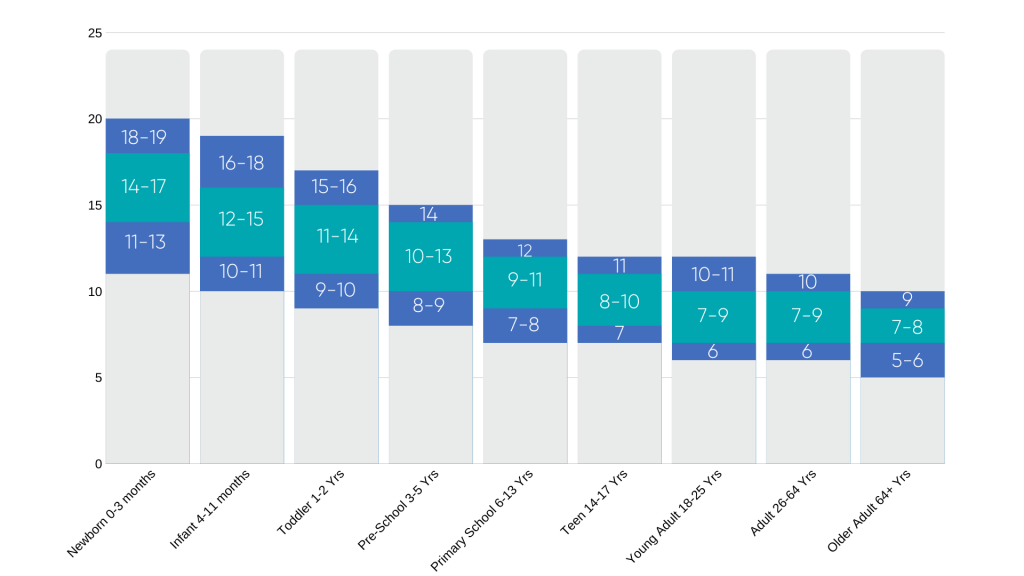Sleep in Modern Life
The above statistics clearly show that there is a disparity between our modern lifestyles and meeting sleep recommendations.
It’s completely normal, for example, to finish work at 6/7pm, socialise with friends or family or sit in front of a screen to wind down, have a shower and before you know it, it’s midnight and you’re setting your alarm for 7am the next day.
This only gives you a 7-hour window of opportunity for sleep. If you don’t have a solid sleep strategy in place, find it difficult to get to sleep, or your sleep is often disturbed, it’s highly unlikely you’ll squeeze in more than six hours of high-quality sleep (especially if you add alcohol, caffeine, artificial light and noise into the mix, more on that in part 2).
Sleep loss due to voluntary bedtime curtailment has become a hallmark of modern society… Chronic sleep loss, [whether] behavioral or sleep disorder related, may represent a novel risk factor for a plethora of disorders, illnesses and diseases”
– Spiegel K.
The Weekend Payback
Do you think you can pay back the sleep debt you’ve accrued over the week with a Saturday lay in and lazy Sunday? First of all, if you have kids or any kind of active social life, good luck with that.
Secondly, let’s do some simple math; if you owe 2 hours per night over 5 nights, that’s an extra 10 hours you have to make up over two days? So you’re going to have to sleep 13 hours on both Friday and Saturday night. It’s pretty difficult to get this amount of high-quality sleep in one go.
Additionally, according to recent studies, negative consequences of partial sleep deprivation occur almost immediately. A bit like interest on a credit card. Sleep debt doesn’t remain constant. It builds compound interest over time with the negative effects exponentially increasing!
Is it Time For Change in Perspective?
We feel that a full night of quality sleep is too often seen as a dispensable commodity. Here are some questions we would like you to ponder over the next few days to perhaps change this perspective and initiate some self-reflective mindfulness when it comes to your own sleeping patterns.
- How highly do you prioritise sleep?
- How many hours of quality sleep do you average per night?
- Have you ever consciously noticed your sleep habits and routines?
- How much time do you normally give yourself as a window of opportunity to sleep?
- How do you feel when you wake up?
- Do you need caffeine to feel awake in the morning?
- When was the last time you had a great night’s sleep?
We hope this article has given you a helpful perspective on sleep. It’s clear that more than 7 hours of sleep a night is a non-negotiable staple of health and is not a dispensable commodity.
In Sleep (part 2), we will be discussing what a good night sleep looks like and how to clean up your sleep hygiene.
 Common Purpose Team
Common Purpose Team






